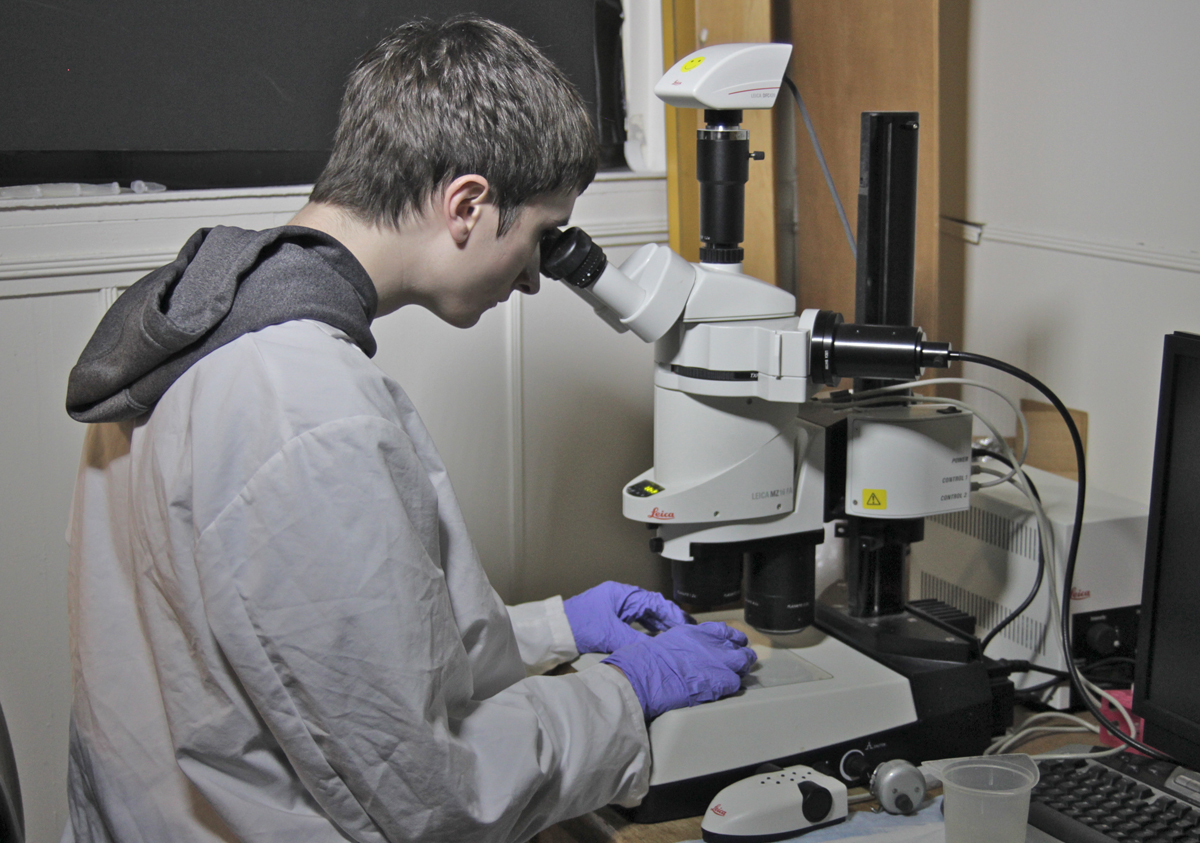by Joshua Timmons, Biology, 2017
Northeastern’s chemistry department was recently named top 10 in a review of career support services among American chemistry departments. The high ranking, a cumulative result of career support services, and quality of network, came as no surprise to department chair Dr. Graham Jones.
“We are well positioned to market our graduates to industry,” said Jones, “we know how to develop and place people because we have been aligned with market needs for some time.” Noting that there has been a recent rise in PhD numbers, Dr. Jones says Northeastern’s chemistry department stands out for its ability to help candidates both up to graduation and beyond it. “If only one third of the PhDs get jobs, it is not good for the profession. In our position, it is perfect because we are positioned for industry and mindful of the market,” said Jones.
As an example, Jones referenced the department’s Industrial PhD program. For a portion of the chemistry department’s students, the Industrial PhD program has emerged as an innovative solution to an all-too-familiar problem for scientists without a PhD: the glass ceiling. Scientists with master’s degrees will often reach a point in their career where they are no longer able to progress without having a doctorate degree. The result? They must put their career on hold to return to school.
Realizing the potential of a less drastic system, the chemistry department created a program whereby PhD candidates keep their industry position, devoting 20 to 30 percent of their time at work towards a doctoral project (either at work or at Northeastern). For the program’s participants it is the best of both worlds: novel basic research, like that of their postdoctoral adviser, combined with the applied science mindset of industry.
For some scientists, leaving their company and sacrificing both their job and salary is an unviable option. With a daughter and mortgage, recent Industrial graduate Dr. Emily Stoler believes the hybrid approach was the best match for her needs. “I had my eye on the program since I began at [Warner Babcock Institute for Green Chemistry.],” said Stoler, “I may have ended up in the same position, but this was a route where I was able to keep my job.”
Stoler was able to do novel research of non-covalent derivatization, an alterative to traditional chemical synthesis and a core technology at her company.
While acknowledging that night classes, research, and work were a schedule-filling combination, she believes that tackling the program was the right decision. “If you do not have a PhD, you are not going anywhere. You cannot look at upper-management positions,” said Stoler. Today she is director of material science R&D at Warner Babcock, having been promoted as soon as she finished her degree.
Stoler said the program gave her a better perspective for what to expect from industry: “the way you design a program is structurally different in industry.”
Given that only 23 percent of PhDs continue towards tenure track positions, and 53 percent of Chemistry doctoral students rank industry work as a top choice career path, the Northeastern’s Industrial program has managed to address a previously unmet need. Not only do candidates conduct novel basic research but they also do so in an environment that closely matches their career objectives. “Industry requires particular skills. It is better to get exposed and understand the problems sooner than later,” said Jones.
“It is a new model,” said Jones. Encouragingly, it is one that appears to be working. Moving forward, Jones sees the program as a possible template for other fields like biology and biochemistry, where glass ceilings are just as prevalent.

